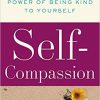The boy took careful aim with his lever-action BB gun and fired off the first shot. The tiny pellet pierced one of the windows of the tall tree-house, and jagged cracks radiated from the pinhole it made.
The house was nestled securely in the giant crook of an oak tree that stood right next to the fence dividing the two yards. His friend’s father, tall, gentle, attentive to his work, had built it well with walls of plywood and four small glass windows.
The Good Self Never Does Wrong
The day before, the boy had joined his friend inside and loved the smell of the newly cut pine two-by-fours and the slightly pungent odor of the plywood sawdust that remained scattered on the floor. It was tall enough for two six year-old boys to stand.
He cocked the handle of the air rifle again and fired into the second window. Not enough. He cocked and fired again and again until each window had cracked and broken, leaving tiny holes and sharp edges where the clear, single-pane glass had fitted so well into each frame a few minutes before.
Much later that day, he stood beside his mother in the backyard facing his friend and his friend’s father. They had gathered beneath the oak tree and its small house with shattered windows.
“I didn’t do it.” The boy stood his ground. His friend’s father pointed out that the shots had come from this side. He was a patient, quiet man, not given to outbursts of any kind.
“It wasn’t me.” The man looked to the boy’s mother with a muted appeal and disbelief. She turned to the boy, asked him again, got another denial and said nothing else. But her stare was full of hard rebuke.
That was all. The boy tried to feel OK. He had done it, but it hadn’t been him. He never did things like that. Never.
Disowning Anger and Pain
I was that six year-old boy. This was the first time I remember doing something destructive or dishonest and disowning the act. I felt nothing while doing such things and couldn’t admit to having done anything wrong. It wasn’t part of my identity back then. I never did anything wrong. That wasn’t me.
I learned early to disown anger and every hard emotion that came from a place of deep need. I must have envied my friend for the fatherly love that could so carefully guide the making of that perfect tree-house. But I had made no room, even as young as I was, for feeling a need for love, much less envy of someone who had a great father. Those needy feelings didn’t exist for me.
I was the little adult, admired by teachers for my maturity, looking down on my “childish” friends who kept bursting out in tears and tantrums over petty things.
Selective Self-Acceptance
I never broke the rules, that is, 99% of the time. What was that 1%? I learned to keep those odd acts at a distance but sensed there was another me lurking within, ugly, dangerous and shameful. I had no clear awareness as a kid of a separate part of me, no way to visualize a different character.
Whatever was going on inside was a blank. There were just these strange things that I sometimes did. All I knew was that they had nothing to do with the “real” me, and so I couldn’t have done them.
For much of my life, I was uncomfortable with “who I am” and often confused about why I did what I did. I thought I got on well with people, for the most part, because I was good at keeping the other side of me hidden. But I noticed more and more the knife-edged words that came out when I was trying to be nice to someone. Or the shutting down and turning away from a friend across a street about to wave hello.
Putting the Self Together Again
For a long time, I was confused because I never could accept the other part, the guy with the hostile edge to him. I had a hard time admitting to the behavior that others could see so plainly. It couldn’t really be me who was doing and saying angry things to get them upset.
Psychotherapists have many ways to explain such beliefs about yourself. There was trouble with attachment as a kid, as parents were unable to respond to the emotional needs of a boy. You might adapt by blocking out the need you felt or by hating the self that seemed to disappoint your parents.
One form of therapy helps you find the weak bond and develop compassion for the neglected kid whose unexpressed anger and hurt you’ve held onto for all these years. If you can finally come to accept the disowned side of yourself, you can go a long way toward removing an ancient source of depression. At least, that’s the idea.
I tried that approach a couple of times but without much success. When presented as “finding and loving the inner child,” the idea felt artificial, a cliche of the 90s. But then I read an account of a therapy session that made more sense emotionally.
The key question asked by the therapist went something like this: If you saw a boy acting out the way you did, would you reject and disown him or reach out to help, perhaps by asking simply, What’s wrong? You don’t have to react the way your parents did. Can you give the kid a break?
Put that way, I could finally see what this was all about. It took a while, but a long-held tension in my chest gradually loosened.
Can you give the kid a break?





I can and do. I have learned to give myself, and especially my younger self, the love, acceptance and compassion I would give any other person. It has helped me heal and grow.
I remember the first time I disavowed my own actions. I told my sister a lie, and she believed me, and said “You know why I believe you? Because you are a good kid.” I felt like such a fraud and a horrible person. I was grateful for the opportunity years later the come clean and correct the lie – something which she of course did not even remember, but it stays with me to this day, though even for this I have forgiven myself. I was young, and I have learned to be better and do better.
Hi, Michael –
Isn’t it strange how long we hold onto the guilt of small transgressions that others can’t even remember? I have dozens of those memories that used to feel so present, and it is one of the marks of recovery, I think, that I can recall them in a more relaxed and balanced way now without self-condemnation or a twist in my gut. Thanks for sharing that story.
John
John, this is something I haven’t given a lot of thought to in recent history. But it really does hit home. I used to hate myself immensely any time I got angry at someone because my dad was so angry all the time, I was NOT going to be like him, no way! I remember telling a therapist once that I never got angry. I almost laughed when she reminded me of that. Of course, I’ve since learned that no one is exempt from negative emotions and just feeling angry doesn’t make you a bad person. It’s sometimes hard for me to admit it when I make mistakes, but not nearly so much as when I was younger. Being wrong about anything was cause for ridicule and rage from either of my parents, so I tried to always be sure of things before I spoke. It got to the point where I wasn’t sure any more what I really felt or thought, for fear it was “wrong.”
I was taking care of my grandson today and whenever I see him, I feel so grateful that he doesn’t have to grow up in that kind of environment and look over his shoulder whenever he speaks or forgets himself and has a good time. Sometimes I want to weep over what I didn’t have. At least I got to break the cycle.
Hi, Judy –
It’s wonderful that you were able to break the cycle and not recreate the same problems with emotional life that you learned from your parents. I guess I shouldn’t be amazed that these childhood patterns survive into adulthood for so long since they help you survive day after day as a child and adolescent. I heard someone the other day describe the difference between two life stages: grown up and adult – the grown up has a big body on the outside and a child within, while the adult has the fully grown body and a mature person within.
John